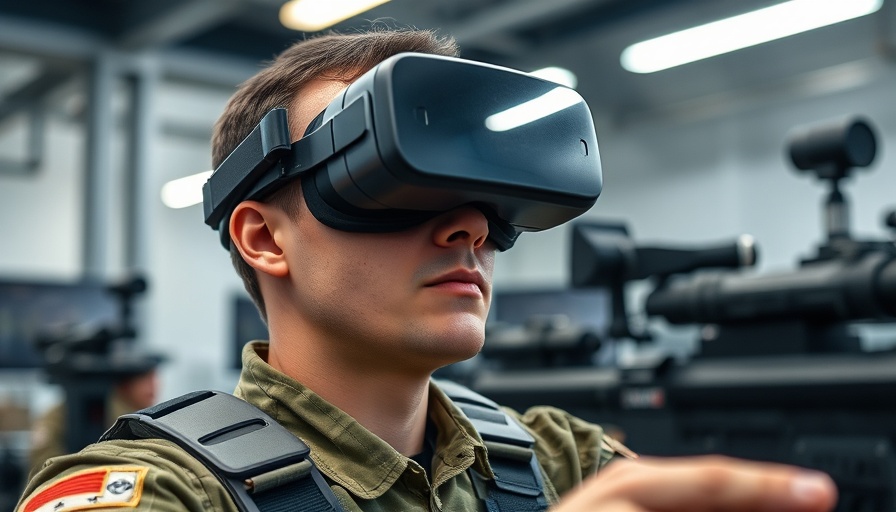
Revolutionizing Military Technology: Anduril’s Vision
As the world embraces technological advancements, Anduril Industries, a defense technology company, is setting new standards by taking control of Microsoft’s ambitious $22 billion Virtual Reality (VR) military headset program. This pivotal shift positions Anduril at the forefront of military innovation, allowing them to redefine how armed forces interact with VR technology.
What This Means for Military Operations
The infusion of VR capabilities into military operations has the potential to transform training and operational execution. Imagine soldiers wearing headsets that simulate real-world scenarios, enabling them to prepare for complex situations and enhance decision-making processes under pressure. By leveraging Anduril's expertise, the military can expect improved training outcomes, leading to better preparedness on the battlefield.
Historical Context and Background
The development of military-grade VR technology traces back over a decade, with early prototypes aiming to enhance training simulations. The collaboration between tech giants and defense contractors has always aimed to foster innovation that benefits national security. Anduril’s acquisition of this program signifies a crucial step towards a new era of immersive training that utilizes VR’s vast potential.
Social Significance: Why This Matters
The technological enhancement of military training can have broader implications on society. As military personnel become better trained and more efficient, overall national security can improve, potentially reducing the risks of conflict. Additionally, advancements in this domain often trickle down to civilian applications, impacting areas such as emergency preparedness and workforce training.
Future Predictions and Insights
Looking ahead, we can anticipate that the combination of Anduril's innovative approach and Microsoft’s cutting-edge technology will foster a new wave of military VR solutions. This could lead to higher investments in defense technology and possibly even the introduction of VR assistance in other sectors, such as healthcare and education, creating a ripple effect across industries.
Counterarguments and Diverse Perspectives
While the potential of VR in military contexts is exciting, it is essential to consider diverse viewpoints. Critics may express concerns regarding the ethical implications of using advanced technology in warfare. Questions arise about autonomy in armed conflict and the risks of depersonalizing combat. A balanced approach that considers these perspectives is necessary to ensure responsible advancement.
Unique Benefits of Knowing This Information
Understanding how military technology intersects with business and consumer realms can provide professionals with a unique edge. For businesses in the tech arena, awareness of military contracts and advancements can open new partnership opportunities and foster innovation that aligns with market needs.
Practical Insights and Tips
For business owners and marketers, observing the trends in military technology can guide strategies in their sectors. Incorporating simulation tools into training programs, for instance, can improve employee readiness and engagement. Moreover, as consumers begin to recognize the innovations originating from military tech, businesses should be ready to adapt their marketing strategies accordingly.
 Add Row
Add Row  Add
Add 




Write A Comment